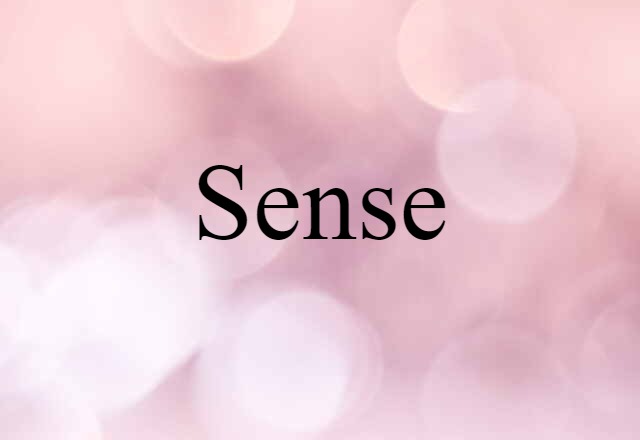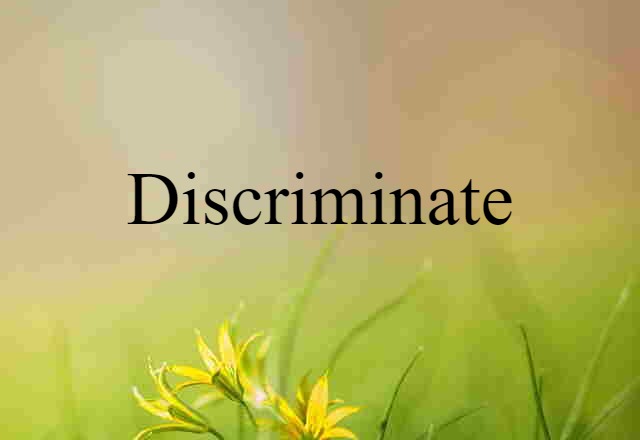- any of the faculties, such as sight, hearing, smell, taste, or touch, by which humans and animals perceive stimuli originating from outside or inside the body: Helen Keller once wrote that hearing was the sense she most wished she could have had.
- the faculties by which humans and animals perceive stimuli originating from outside or inside the body collectively: His senses were screaming that danger was nearby.
- the operation or function of the organs of touch, taste, etc.; sensation: The bloodhound’s sense of smell is greatly enhanced by its long, droopy ears, which scoop up the scents from the ground.
- a feeling or perception produced through the organs of touch, taste, etc., or resulting from a particular condition of some part of the body: She had an uncomfortable sense of cold on the back of her neck.
- a faculty or function of the mind analogous to sensation: His moral sense rebelled against such an unethical scheme.
- any special capacity for perception, estimation, appreciation, etc.: In this job you've got to have a sense of humor.
- clear and sound mental faculties; sanity: Have you taken leave of your senses?
- a more or less vague perception or impression: Sitting with his back to the wall gave him a sense of security.
- a mental discernment, realization, or recognition: All workers should have a sense of the worth of their labor.
- the recognition of something as incumbent or fitting: My sense of duty compels me to accept this mission.
- sound practical intelligence: He has no sense.
- something that is sensible or reasonable: Try to talk sense instead of shouting.
- the meaning or gist of something: You missed the sense of his statement.
- the value or worth of something; merit: There's no sense in worrying about the past.
- the meaning of a word or phrase in a specific context, especially as isolated in a dictionary or glossary; the semantic element in a word or group of words: The word "dog" has a literal sense, but it can also be metaphorical.
- an opinion or judgment formed or held, especially by an assemblage or body of persons: We didn't bother with formal minutes, but we did take notes on the general sense of the meeting.
- a DNA sequence that is capable of coding for an amino acid (distinguished from nonsense).
- one of two opposite directions in which a vector may point.
- to perceive (something) by the senses; become aware of: I sense there's a storm on the way.
- to grasp the meaning of; understand.
- (of certain mechanical devices) to detect physical phenomena, as light, temperature, radioactivity, etc., mechanically, electrically, or photoelectrically.
- to receive or capture (encoded data) electrically, photoelectrically, etc., through an input device: When you scan the bar code, an optical mark reader senses the data encoded in the position of the bars.
- to regain one's good judgment or realistic point of view; become reasonable.
- according to one explanation or view; to a certain extent: In a sense it may have been the only possible solution.
- to be reasonable or comprehensible: His attitude doesn't make sense.
- any of the faculties by which the mind receives information about the external world or about the state of the body. In addition to the five traditional faculties of sight, hearing, touch, taste, and smell, the term includes the means by which bodily position, temperature, pain, balance, etc, are perceived
- such faculties collectively; the ability to perceive
- a feeling perceived through one of the senses
- a mental perception or awareness
- moral discernment; understanding
- sound practical judgment or intelligence
- reason or purpose
- substance or gist; meaning
- specific meaning; definition
- an opinion or consensus
- one of two opposite directions measured on a directed line; the sign as contrasted with the magnitude of a vector
- logic linguistics
- the import of an expression as contrasted with its referent. Thus the morning star and the evening star have the same reference, Venus, but different senses
- the property of an expression by virtue of which its referent is determined
- that which one grasps in understanding an expression
- to be reasonable or understandable
- take leave of one's senses See leave 2 (def. 8)
- to perceive through one or more of the senses
- to apprehend or detect without or in advance of the evidence of the senses
- to understand
- computing
- to test or locate the position of (a part of computer hardware)
- to read (data)
















